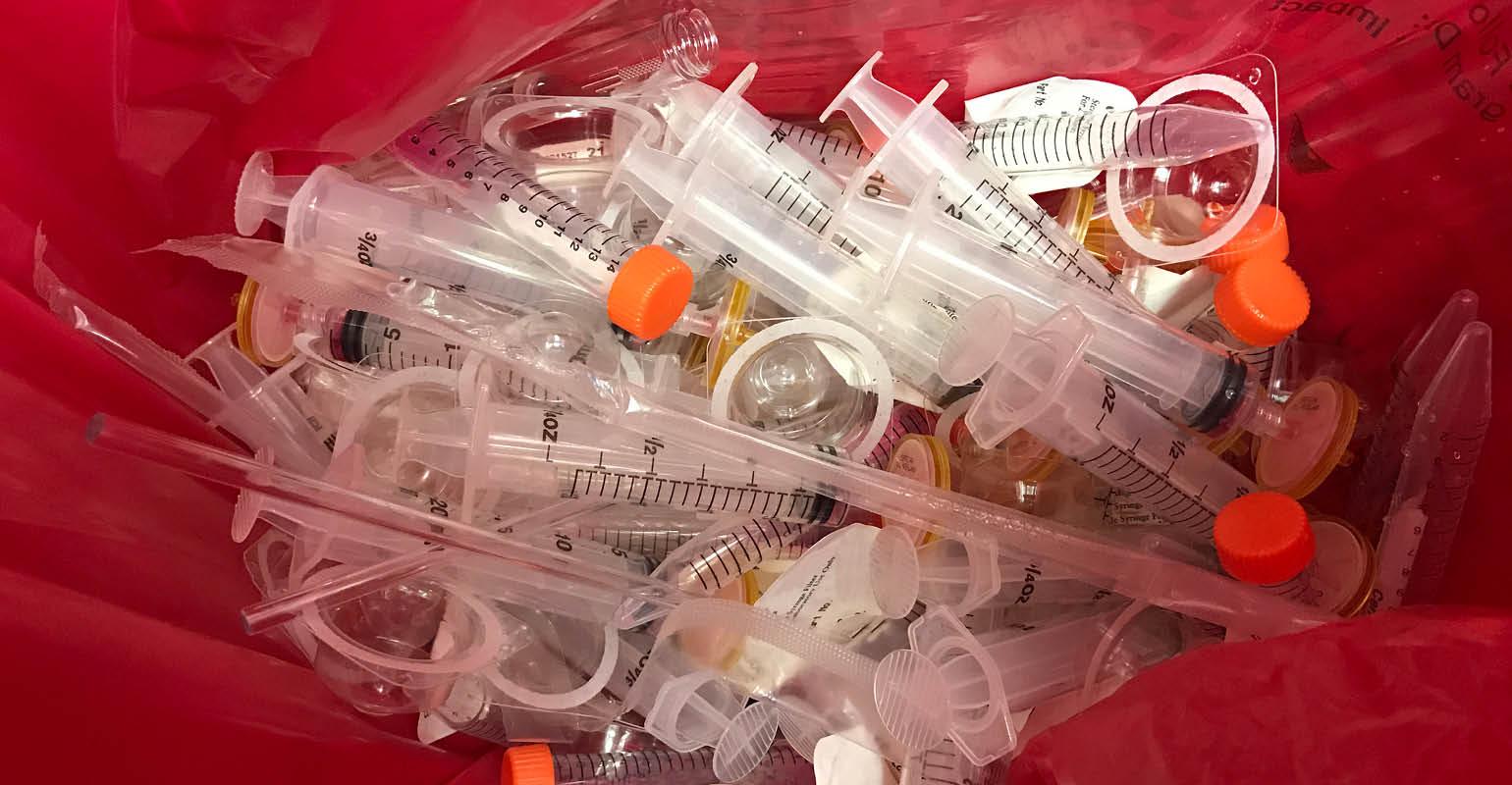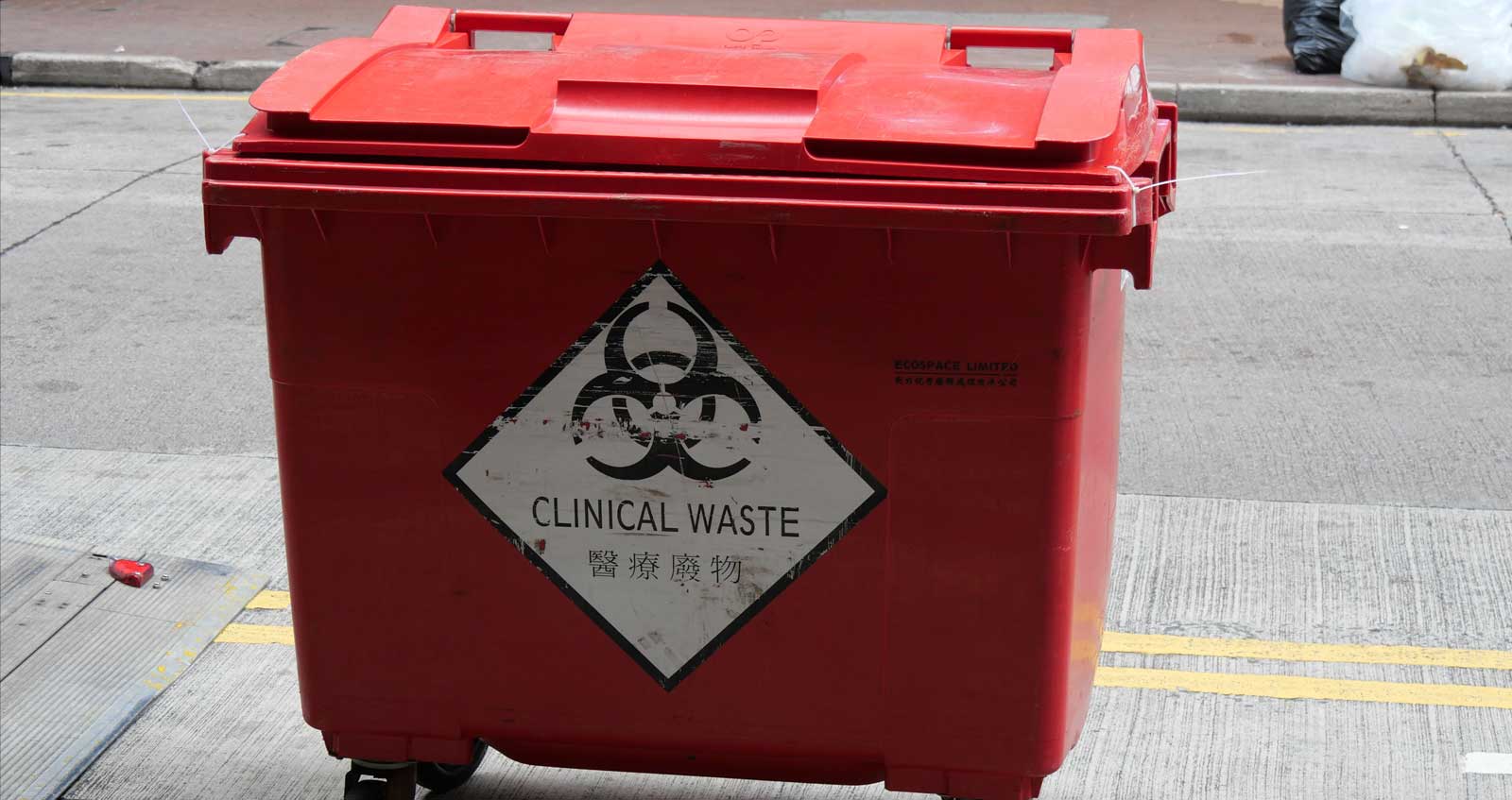Past Cleaning: Ensuring Safety And Security with Specialist Medical Waste Removal
Past Cleaning: Ensuring Safety And Security with Specialist Medical Waste Removal
Blog Article
Remain Ahead of Regulations: Expert Guidance on Medical Waste Disposal
In a world where the healthcare industry is frequently developing, it is imperative for clinical facilities to stay ahead of laws when it involves the correct disposal of medical waste. With stringent guidelines and regular regulative adjustments, it can be testing to browse the intricacies of this procedure. With expert guidance, facilities can guarantee compliance and reduce dangers connected with inappropriate waste disposal. From understanding the different classifications of clinical waste to implementing the appropriate collection and partition approaches, this discussion will certainly provide workable ideas and beneficial understandings to help facilities remain in advance of laws in the ever-changing landscape of medical waste disposal.
Understanding Medical Waste Categories
Comprehending clinical waste groups is important for correct disposal and monitoring in medical care centers. Clinical waste describes any kind of waste created by medical care activities that may posture a danger to public health or the atmosphere. It is critical to categorize medical waste properly to guarantee its safe handling, transportation, disposal, and therapy.
There are several classifications of medical waste that health care centers need to be acquainted with. One of the most common classifications consist of infectious waste, pathological waste, sharps waste, pharmaceutical waste, and chemical waste. Each group has certain standards and guidelines for its proper administration and disposal.
Infectious waste includes materials infected with blood or other bodily fluids, such as gloves, gowns, and lab cultures. Pathological waste describes human tissues, organs, or body parts that call for special handling and disposal. Sharps waste consists of utilized needles, syringes, and various other sharp things that can trigger injury and transmit infections. Drug waste comprises ended, unused, or contaminated medications that need mindful handling and disposal. Chemical waste consists of solvents, disinfectants, and other chemical compounds made use of in healthcare facilities.
Staying Up-To-Date With Regulatory Adjustments
Remaining existing with regulatory changes is vital for medical care facilities to ensure compliance and correct monitoring of medical garbage disposal. medical waste removal services. With policies frequently developing, it is vital for healthcare centers to remain updated to prevent charges, penalties, and prospective injury to the atmosphere and public health and wellness
To remain ahead of regulative changes, health care centers need to develop a system for tracking and tracking updates. This can be done by signing up for regulatory e-newsletters, going to seminars and workshops, and proactively getting involved in market associations. Furthermore, facilities must assign a personnel or team liable for remaining notified and disseminating info to appropriate stakeholders.
Routine interaction with regulatory agencies is additionally vital. Healthcare centers ought to establish relationships with regional, state, and federal companies to guarantee they are mindful of any kind of changes in regulations that may affect their waste monitoring techniques. This can be done through routine conferences, involvement in public comment durations, and proactive interaction with governing companies.
In addition, health care centers ought to consider partnering with waste monitoring business that focus on medical waste disposal (medical waste disposal services with WasteX). These companies are commonly fluent in the most up to date guidelines and can give advice and support to ensure conformity
Implementing Correct Collection and Segregation Approaches
To efficiently manage clinical garbage disposal, health care centers need to establish proper collection and segregation techniques according to regulatory standards. Carrying out these methods makes sure the risk-free handling and disposal of possibly dangerous materials, shields the setting, and reduces the risk of infections and injuries to healthcare employees and the public.
Correct collection and segregation approaches entail using marked containers and identifying systems. Healthcare facilities ought to supply clearly classified containers for various sorts of medical waste, such as sharps, infectious waste, pharmaceutical waste, and non-hazardous waste. These containers need to be color-coded and plainly marked to avoid complication and advertise easy identification.
In addition, medical care facilities ought to train their personnel on the right treatments for collecting and segregating clinical waste. This includes educating them on the various kinds of waste, the suitable containers to utilize, and the significance of adhering to his explanation laws and guidelines. Routine training sessions and correspondence course should be conducted to ensure that employee remain current on finest practices.
Moreover, health care centers ought to develop a system find out here for routine collection and disposal of clinical waste. This may involve partnering with accredited waste management firms that concentrate on medical garbage disposal. These firms will guarantee that the gathered waste is transported and disposed of in compliance with regulative needs.
Picking the Right Disposal Techniques

Incineration is among one of the most usual and effective methods for disposing of specific kinds of clinical waste, such as pathological waste and sharps. It involves the regulated burning of waste at heats, reducing it to ash. Incineration can release unsafe pollutants right into the air and add to air contamination.

Other disposal techniques include chemical therapy, microwave treatment, and landfilling. Chemical therapy includes the use of chemicals to disinfect and neutralize the waste. Microwave therapy utilizes microwave power to warmth and sanitize the waste. Landfilling entails hiding the waste in a designated landfill location (medical waste disposal services with WasteX). Landfilling should be the last More about the author hotel due to the prospective risk of contamination to soil and groundwater.
Ensuring Compliance With Documents and Training
After carefully considering the proper disposal approaches for medical waste, health care centers need to ensure conformity with policies and decrease environmental impact by carrying out effective paperwork and training procedures. This action is crucial in maintaining a secure and sustainable setting for both healthcare workers and the basic public.

Training is just as crucial in guaranteeing compliance with laws. Medical care workers who manage clinical waste should receive proper training on waste partition, handling, and disposal procedures. This training ought to cover subjects such as the correct use personal safety equipment, recognition of various kinds of waste, and the right disposal methods for each and every waste classification. By providing thorough training, healthcare facilities can encourage their staff to make educated choices and minimize the risk of inappropriate waste disposal.
Verdict
To conclude, remaining in advance of policies in medical waste disposal is critical for healthcare facilities. medical waste removal. Comprehending the different groups of clinical waste, staying updated with regulative modifications, implementing proper collection and partition techniques, choosing the ideal disposal techniques, and guaranteeing conformity with documentation and training are all essential actions. By complying with these guidelines, medical care organizations can effectively dispose and take care of of clinical waste in a secure and liable manner
From understanding the various groups of clinical waste to applying the appropriate collection and partition techniques, this discussion will certainly give actionable tips and important insights to help facilities remain ahead of regulations in the ever-changing landscape of clinical waste disposal. - medical waste disposal services with WasteX
The most typical categories include transmittable waste, pathological waste, sharps waste, pharmaceutical waste, and chemical waste. Medical care centers should provide clearly labeled containers for different types of medical waste, such as sharps, contagious waste, pharmaceutical waste, and non-hazardous waste. Health care facilities must develop a thorough system to record and track all aspects of medical waste disposal, including types of waste produced, amounts, and disposal techniques made use of. Medical care workers who take care of medical waste should obtain proper training on waste segregation, handling, and disposal treatments.
Report this page